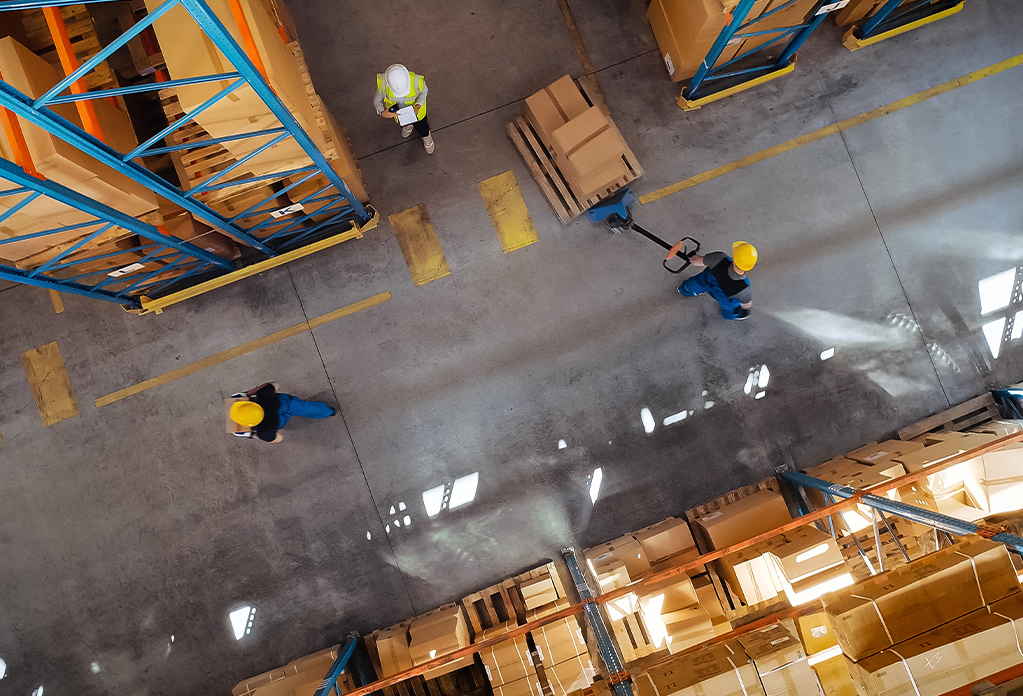
The sheer length of supply chains within logistics and warehouse distribution makes the industry one that is highly susceptible to cases of modern slavery.
A global issue, one that doesn’t discriminate between its victims, these industries need to first be aware of the problem and then work to eradicate it to the best of their abilities.
We know erasing modern slavery is by no means an overnight process, but through having the right resources, tools and know-how, organisations can continuously strive to minimise its impact.
Understanding the risks
First and foremost, it’s about knowing where your risks are. Industries where temporary labour is prevalent are inherently at risk. With long supply chains and transient work forces, those in the logistics industry need to be extra vigilant of malicious activity taking place.
Often, it’s not the suppliers themselves that are responsible for cases of forced labour, but rogue infiltrators that manage to penetrate operations and maintain control over certain workers.
The risks can lie just about anywhere along a lengthy supply chain and any individual can be responsible for exploiting others across an organisation and its operations. The risk of modern slavery in your organisation ultimately damages the livelihood of individuals and the reputation of your business.
Where to start with remediation?
You know you want to make a change within your business, so, what can you do to address these risks?
Risk assessment
Undertake regular risk assessments within your business and with your suppliers. This will help you understand where the risks are so that you can manage them more effectively.

Know your workforce
The issue of modern slavery revolves around the workforce. It’s your responsibility as a business to know where your workers are coming from and to perform all the appropriate identification checks. If you don’t, you increase the risk of having exploited workers in your operations.
Unseen Business can help you to strengthen your onboarding processes, and support you so you know the signs of worker exploitation and how workers who are being exploited may appear or behave.
Have guidelines in place
The logistics industry and warehouse distribution, involves working with many third parties. This can increase your risks. Make sure you have clear expectations and guidelines in place for any labour provider or third party to adhere to.
Know what to do
Is there someone in your business who is responsible for dealing with any reports of modern slavery?
Having an appropriate policy in place to make sure people know what to do if they are concerned about a situation or other workers is important. Worker exploitation and labour abuse are highly sensitive subjects. Workers need to know that they can confidently and confidentially discuss any concerns they may have with the right people, in a way that protects them and others.
If your business doesn’t have a strong reporting and escalation procedure, then your ability to know what is happening and how you can address concerns appropriately is limited.
Policies and practices
Making sure you have clear policies, practices and procedures for how you will mitigate risks and how you expect others to do the same is key. If your framework is weak, risks can increase.
Unseen Business can help you to strengthen your approach, put in place an effective strategy and review progress with you. Once we help you put the right policies and practices in place, then it’s a process of continuous improvement. A regular reviewal process can help to prevent risks emerging in the future.
Modern slavery support for warehouse distribution and logistics
Modern slavery and worker exploitation needs to be handled tactfully, sensitively and professionally. It’s a difficult subject, one that can be tough to approach and manage as a business.
The team at Unseen Business can help you to understand your risks, educate your business and workers and put in place strong approaches that help you to continuously improve.
We will support you to know more about what’s happening in your supply chains, create greater resiliency to modern slavery risks and ultimately protect workers from abuse.
We can help you remediate problems that have happened, and pave a better path for where you want to go.
Contact us today for a chat.


